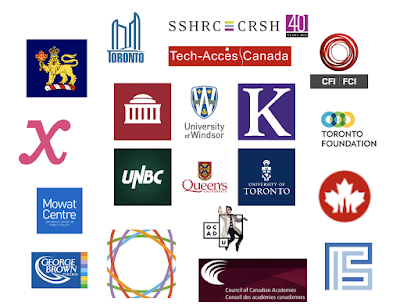Micro-credentials are having their moment. For those of us who have been working with them for some time it seems like this has been a moment a long time coming.
I’ve been giving micro-credentials a lot of thought lately as we here at eCampusOntario start to ramp up our work in the space. Our micro-credentials Framework offers a highly useful guide to implementing these, and has been used by the 36 pilots we have funded across a range of industries. And the eCampusOntario fourth annual micro-credential forum will take place in February 2021: have a look at the 2020 Forum re-cap page to learn more.
Micro-credentials offer iterative and agile ways for learners to mark milestones in their learning journey. In an ideal world these will always ladder into successive credentials that enable learners to build on their knowledge and skills throughout their lifetime. We already have models of practice for this in the ways that we can transfer from diplomas to degrees.
If I think about the credentials I have earned that have formal recognition these are broken into two types: those that have been part of a laddered series of credentials (BA, MA, PhD) that form the basis for my formal education, and those that I have earned through professional development that I have earned throughout my career. These credentials have been developmental, and iterative.
 |
| The path from formal credentials to professional development |
But learning is much more than formal programming, as important as this is. Informal learning has played (and continues to play) a significant role in my developmental journey. In this sense my formal credentials are complemented by the experiential aspects of service to my community and my participation in communities of practice. This experiential learning is significant as it represents the wider constellation of experiences I have had that have all contributed in meaningful ways to my overall professional development, and my development as a human being.
 |
| The constellation of credentials and experiential learning |
I had the occasion yesterday to catch up with a colleague with whom I worked many years ago. We were discussing micro-credentials and reminiscing about when we first connected on these back in 2012. And last week I was interviewed by my friend and colleague Laurie Harrison as part of our upcoming TESS conference (next week! Register here). We chatted about the work we used to do together (I worked for Laurie at the Adaptive Technology Resource Centre back in the early 2000s). This included creating short, online courses for teachers working to integrate people with special needs in the classroom as part of the Special Needs Opportunity Windows (SNOW). We didn’t call these micro-credentials at the time, but that’s what they were.
The difference now is that we are working as a system (or set of systems) to more rigorously stand up micro-credentials as viable pathways to learning, be this for formal or informal learning, as well as for reskilling and retraining. This latter point is very key to helping our society in the pandemic rebuild and recovery. There have been many people laid off, furloughed or otherwise under- or unemployed, including due to changes being wrought because of automation. Micro-credentials offer a viable and valid model for ensuring that learners can access vital learning to support career progression and transition. Scaffolding learning in this way helps us ensure our recovery and rebuild is as inclusive as can be.
There is much work to be done on micro-credentials, and eCampusOntario is here to help. I am confident that we can work together to ensure access to education as part of our role in supporting the postsecondary system. As our SXD Lab puts it: our goal is to promote and enable purposeful learning for a meaningful life through the ongoing development of prepared citizens to participate meaningfully in the economy.

Informative blog, thanks for sharing
ReplyDeleteMobile Learning Solutions
Custom eLearning Solutions